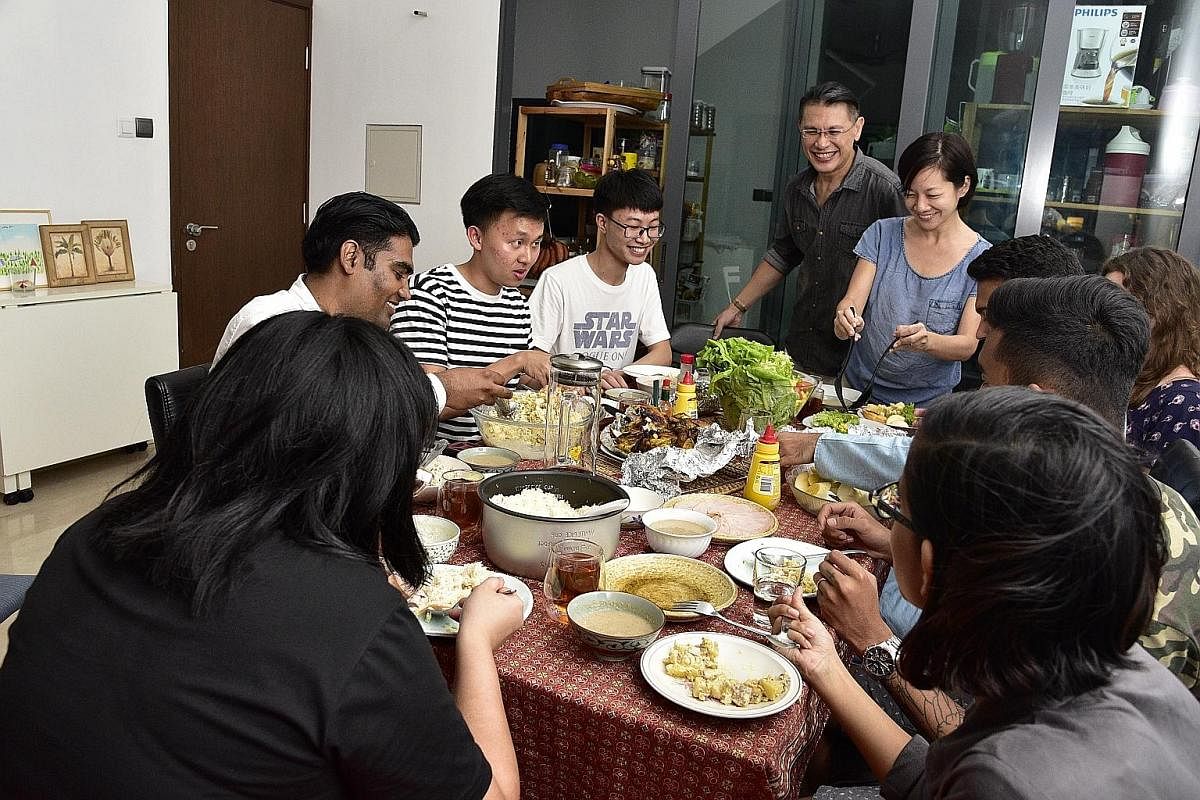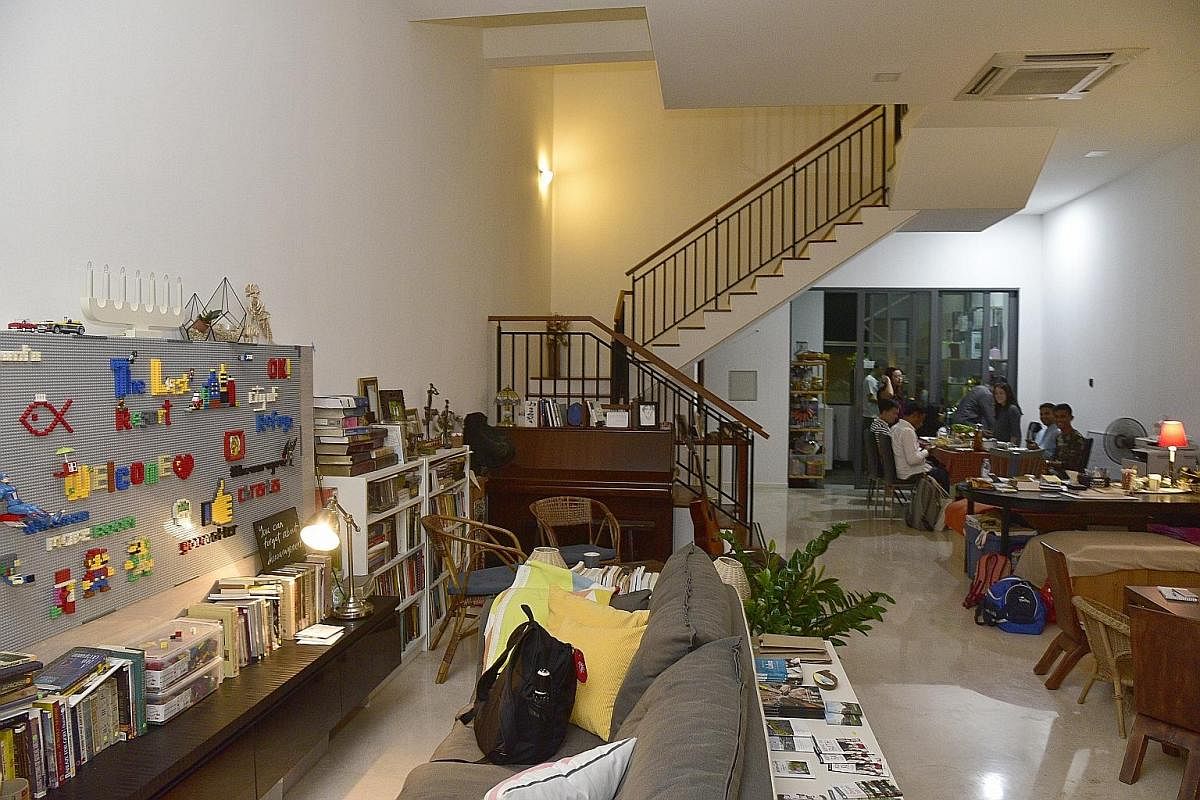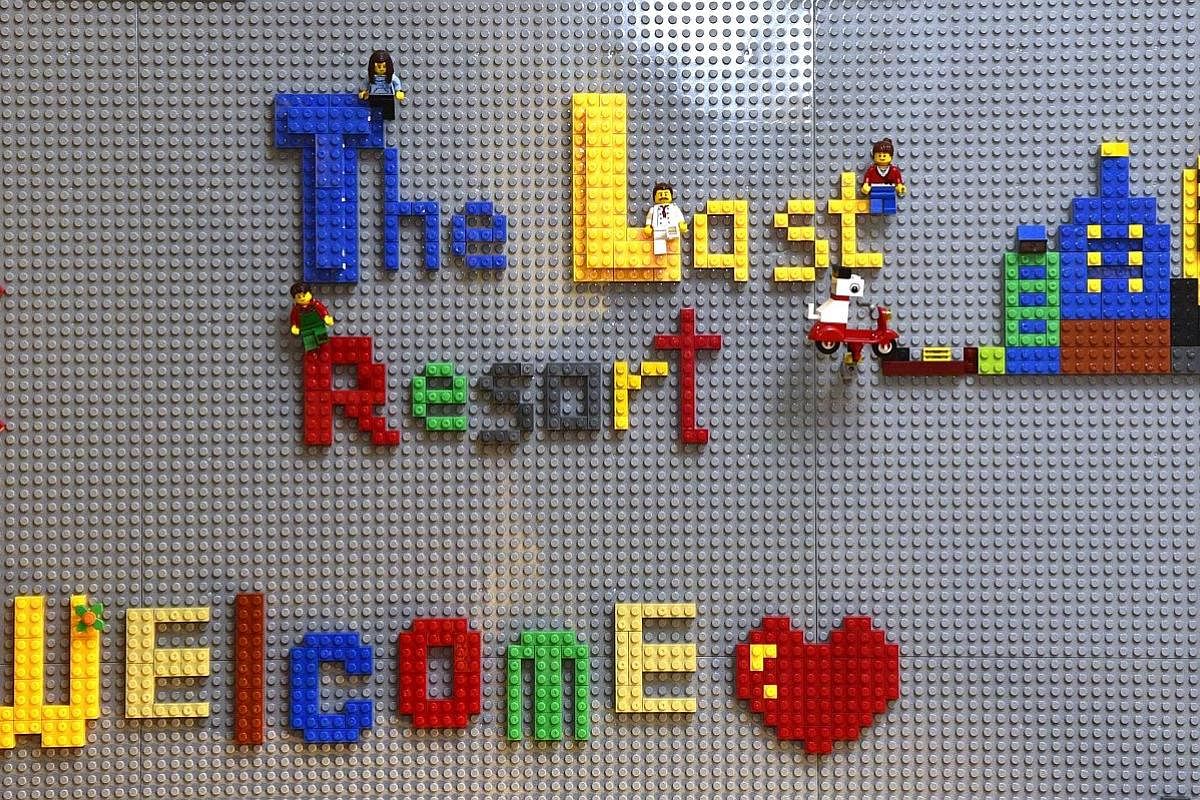Opening their home to young people with nowhere to go - for free
Kenneth and Adeline Thong open their home to young people with nowhere to go - for free



Unlike most newly-weds who look forward to the privacy of their own homes, the Thongs went in the opposite direction when they married in 2007. They rented a three-room flat in Toa Payoh and threw open their doors to complete strangers to live with them for free.
Over the last decade, there has hardly been a time when the couple, who do not have their own children, have not had a teenager or young adult living with them. Most come from abusive and dysfunctional families, and have nowhere to go. Many, ranging in age from 18 to their mid-20s, are too old for institutional care or fostering.
"We are not perfect but we want them to experience what a normal, safe, functional family looks like. And that means they're free to have whatever we have here," said Mr Kenneth Thong, 46, who left his director role at a non-profit organisation earlier this year.
He and his wife Adeline, 39, a former part-time external school counsellor, have housed more than 35 young people over the years, with stays ranging from one day to three years.
From a three-room flat, the couple went on to rent a four-room flat and then a five-room flat in Sengkang to house more people.
In April, they moved into a four-storey terrace house in Seletar, renting it for $5,000 a month.
Money was tight and they almost could not cough up the initial payment of $15,000 - one month's rent and two months' deposit. But the couple, who are Christians, felt the call to go ahead.
The young people who come to their doors are usually from broken families and need a roof over their heads. They could be unwed mothers with babies, teenagers living on the streets or those with mental problems. Those who land in institutional care, such as children and young persons' homes, may find that too regimented, and such an environment may also not be the best fit for youth who are not offenders or who do not have high needs.
Recognising the value of home environments, the Ministry of Social and Family Development (MSF) is continuing its push to place children in foster families instead of institutional homes.
MSF said there are 600 residents in children and young persons' homes, of whom 15 per cent are aged above 16. There are also community-based crisis shelters funded by MSF for adults and families who face domestic violence.
Said an MSF spokesman: "Ground-up initiatives by the community further complement our support for the vulnerable in society."
With the terrace house's marble flooring and modern furnishings, the only giveaway that this is more than an upper-class dream home is a large sign made from Lego bricks in the living room that reads: The Last Resort, Welcome. Its name does not sound very appealing, and that is the point.
"We want young people to know if there is really nowhere else to go, there is a place for you. But we will first sit them down to see if there are other options," said Mrs Thong.
The couple do not have any fixed criteria or checklist, so long as they are convinced the need is genuine and their home can provide the appropriate support. If they turn someone away, it is because the person is not suitable - for instance, if they need strict rules and boundaries that a normal family setting cannot provide - or there is no room in the house.
Referrals are by word of mouth.
Mr Thong was a former life coach for students and both husband and wife have worked with young people. But he said: "We don't present ourselves as therapists or counsellors but as family and as parents so that they can have healthy role modelling." What they offer, he said, is normalcy.
There are five bedrooms, and stayers usually get their own room or share it with one other person. There are no rules, and they are free to help themselves to anything, and can stay as long as they have to.
This comes with risks. In 2009, the walls outside their flat were spray-painted with demands for money supposedly owed by a teenager living with them.
Rent, utilities and other expenses come up to $7,000 a month and the couple, who both left their jobs to do this full-time, said they do not have savings. "We live month by month on goodwill donations from friends and we believe God will meet our needs if this work is to continue," said Mr Thong.
There are many helping hands. A meat supplier to supermarkets sends meat regularly and a group of mothers comes thrice weekly to cook dinner for its denizens. Others donate old furniture or items.
The house has become a refuge not only for young people but for animals too. All their pets - a dog, a quail, a hamster, three cats and four chickens - were rescued.
For now, there are three young people living there. One moved in just yesterday, needing a place to stay as his mother suffers from drug and alcohol addiction. A few years ago, he ran away from Boys' Town, which felt like a "prison", and stayed with friends or slept in the streets.
"When I first heard of this place, I thought it was weird. But having had dinner with them twice, I found the idea of being part of their family very cool. It is something I never had," said the 17-year-old.
The other occupants area 25-year-old single mother with a 10-week-old baby and a 19-year-old girl who has been in and out of the Institute of Mental Health (IMH).
The Thongs' landlord and neighbours are aware that the couple take in young people. "They have good intentions and it's okay as long as they don't disturb the neighbours or bring in dangerous people," said next-door neighbour Angie Tan, 65, a clerk.
When The Sunday Times spent a night with the "family" last week, around the dinner table were the Thongs and their residents, several volunteers and friends.
"So how is everyone related to one another?" one of the visitors asked over a meal of roast chicken, salad and mushroom soup. "It's common; they bring strangers into the house," remarked the 19-year-old resident.
After dinner, the group played board games. The teenage girl fell asleep on the couch while the single mum tended to her baby. Close to midnight, the baby wailed and Mrs Thong helped rock it to sleep.
When asked why she bothered caring for other people's children, including babies, she showed this reporter a message from a teenager who used to live with them.
Student Vincent Moh, 20, sent the text a few hours earlier: "Yo, this is random but whenever I think about my past, I am always so grateful to know you and Ken, who led me to the right path."
Mr Moh, who will complete his ITE education next year and plans to become a physiotherapist, stayed with them on many weekends when his mother, a single parent, was unable to care for him.
Mr Thong said they hope to set up a registered society soon to match vulnerable young people with families willing to take them in. There are similar concepts elsewhere. Servants Vancouver is a community in Canada comprising singles, married couples and families with children. They offer space in their homes to those living on the street, struggling with mental illness or drug addiction.
The next morning was like any other. The teenager talked to Mrs Thong over breakfast about her exams before leaving for classes at a polytechnic. The single mum came downstairs to do the laundry. The postman arrived at the gate and Berrie, the black poodle, sprinted over to greet him.
It felt, somehow, like home.
• For more information, go to https://www.thelastresort.life/
Join ST's WhatsApp Channel and get the latest news and must-reads.
A version of this article appeared in the print edition of The Sunday Times on August 19, 2018, with the headline Opening their home to young people with nowhere to go - for free. Subscribe

